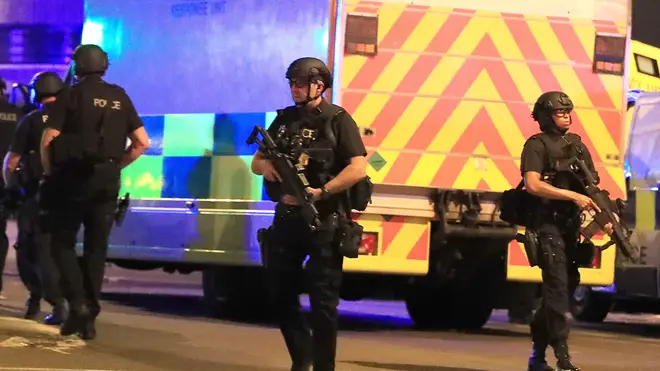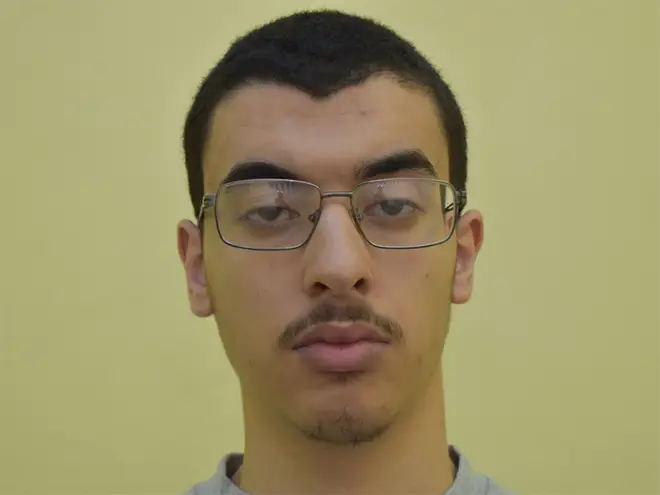
Richard Spurr 1am - 4am
9 September 2020, 21:00

The public inquiry into the Manchester Arena attack will examine whether the authorities missed an opportunity or opportunities to thwart suicide bomber Salman Abedi.
In his opening statement, counsel to the inquiry Paul Greaney QC said the hearing would look at what intelligence and information was or should have been available to security service MI5 and/or police about Abedi, 22, and his plans prior to the blast.
And it will probe whether the steps taken were reasonable in all the circumstances and if the systems, policies and procedures in place were working as they should have done.
22 people were murdered and hundreds more injured in the attack on May 22, 2017.
The history of Abedi's past interactions with police and those of his family, and what MI5 and counter-terror policing knew about him before the atrocity will also be investigated.
Mr Greaney said information on Abedi was first passed to MI5 by the North West counter-terror unit in December 2010 because his details were linked to another subject of interest (SOI).
It was assessed there was nothing suspicious at that time and so there was no further investigation.

However on March 18 2014 Abedi was designated as a SOI himself and began to be investigated by MI5 as a telephone number registered to him was in contact with another SIO thought to be involved in planning travel to Syria for extremism purposes.
That investigation ceased on July 21 2014 when Abedi was assessed not to be a national security risk.
The inquiry heard Abedi was identified having met with or been in telephone contact with two other SOIs in 2015.
He was also identified as a second level contact, a contact of a contact, of SOIs in 2016 and 2017.
While on two occasions between 2011 and 2016 MI5 and counter-terrorism policing made checks due to information received about his travel overseas as there was concern he may be travelling to Syria.
However it was determined he had in fact gone to Europe on the first occasion and Libya, where his parents were born, on the second and it was deemed there was nothing to indicate he posed a risk at that time.

Friend Pays Tribute To “Special” Manchester Attack Victim
MI5 also held information that indicated Abedi had visited a known extremist in prison on more than one occasion but after further information was sought it was assessed this did not justify reopening him as a SOI, said Mr Greaney.
The barrister said that "probably of most interest" was on how two separate occasions in the months prior to the Arena bombing MI5 received intelligence about Abedi in which Mr Greaney said "the significance of which was not fully appreciated at the time but which in retrospect can be seen to be highly relevant to the planned attack".
On May 1 2017 Abedi had also been assessed as meeting the threshold to be considered for further investigation by MI5 and that he was due to be considered for referral on May 31 but "tragically this was overtaken by matters nine days earlier", the inquiry heard.
Mr Greaney said the inquiry would assess whether the decision to close and then not reopen Abedi as a SOI were reasonable given the information available, and whether the intelligence received in the months prior to May 2017 should have stopped the attack.
Other issues to be examined are whether Abedi should have been referred to the Prevent counter-terror programme and if travel monitoring and restriction capabilities ought to have been utilised against him in 2017.

Mother Of Man Killed In Manchester Arena Attack Insists She Will Not Give In To Hate
The final movements of the 22 victims of the Manchester Arena bombing have also been outlined at the public inquiry.
Counsel to the inquiry Paul Greaney QC said the details would be "difficult to hear and difficult to deliver", as he warned those watching it may be distressing.
Relatives of some of the victims wiped away tears in the hearing room at Manchester Magistrates' Court, while other families watched proceedings from a nearby annexe.
Photographs of the 22 were displayed as Mr Greaney described their movements at the Ariana Grande concert on May 22 2017, where they were when Salman Abedi detonated his bomb in the City Room foyer, the extent of the medical treatment given to their injuries, and their cause of death.